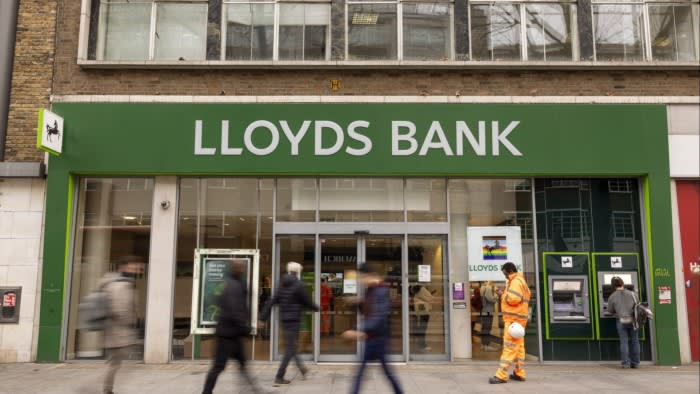
Unlock the Editor’s Digest for free
Roula Khalaf, Editor of the FT, selects her favourite stories in this weekly newsletter.
Lloyds Banking Group has set aside £450mn to cover the potential costs of regulatory probes into historic motor finance commission arrangements.
The Financial Conduct Authority last month said it would investigate discretionary commissions on car financing deals dating back a decade, saying the agreements gave lenders and dealers incentives to lift the interest rate levied on customers.
Analysts fear that the probes could end up costing the industry billions of pounds. Lloyds owns Black Horse, the UK’s largest motor finance provider.
Lloyds announced the provision on Thursday alongside its fourth-quarter results. The UK’s largest high street lender said underlying pre-tax profits were £1.8bn in the final quarter of the year, in line with analysts’ forecasts. Quarterly revenues fell year on year to £4.2bn, below estimates of £4.4bn.
For the full year, profits rose to £7.8bn, matching expectations, as the bank benefited from a sector wide uplift from higher interest rates.
Shares in Lloyds were down 0.5 per cent in early trading.
The amount Lloyds set aside for bad loans was much higher than anticipated because of the FCA probe. The provision for bad loans rose to £541mn in the fourth quarter — far above analysts’ expectations of £126mn and much higher than the £187mn it set aside in the third quarter. The rise came despite a windfall from the repayment of debt linked to the Telegraph media group.
Lloyds shares have fallen about 10 per cent since the start of the year, partly because of its ownership of Black Horse.
Analysts at RBC Capital Markets have estimated the scandal, which has echoes of the payment protection insurance (PPI) crisis, could cost Lloyds £2.5bn, more than any of its rivals.
The bank said there remained “significant uncertainty” about “the extent of any misconduct and customer loss” as well as the nature of “remediation action, if required, and its timing”, adding that the hit could therefore end up being materially higher or lower.
Like other retail banks, Lloyds has benefited from rate increases from the Bank of England over the past two years. However, the earnings windfall for the sector is widely believed to have peaked, with base rates expected to start falling this year.
Deposits fell by 1 per cent to £471bn in 2022 as customer account balances fell due to higher spending and a more competitive savings market.
